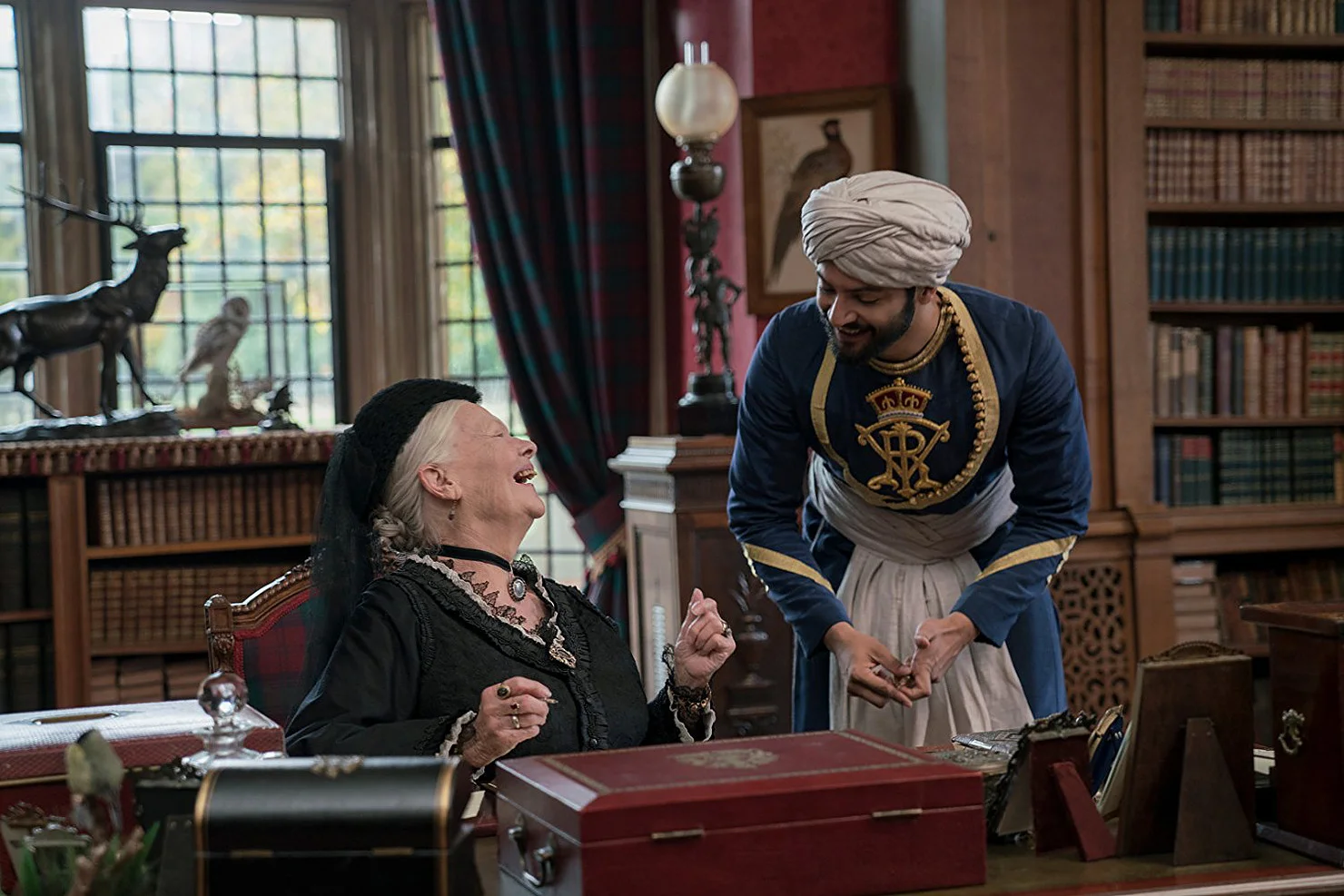Victoria and Abdul Directed by Stephen Frears
Victoria and Abdul
Directed by Stephen Frears
Starring: Jude Dench, Ali Fazal, Tim Pigott-Smith, Eddie Izzard, Adeel Akhtar, Paul Higgins, Michael Gambon
Year: 2017
Country: UK, USA
Author Review: Roberto Matteucci
Queen Victoria was sovereign of England from 1837 to her death in 1901.
He was also Empress of India since 1876. She was a conservative queen, led the expansion of British empire and its colonialism. There were so many wars during her reign.
The queen had a strong and energetic character, rich of personality, as she defined herself in the film: "irascible, greedy, of bad character and unpleasantly attached to power."
She was also a woman who had nine children, and an intense passion for men. (1)
Particularly related to this affection is an episode that happened in her old age: a physical turmoil for a handsome Indian boy.
It's the story of Victoria and Abdul of director Stephen Frears.
In 2010, the writer Shrabani Basu wrote the book Victoria and Abdul about the friendship between the old powerful sovereign - she was 68 (2) - and a young, handsome, twenty-four-year-old Indian Muslim boy.
Abdul was an employee in an Indian jail. It was select to bring a gift the queen for a celebration.
During the delivery, despite the absolute prohibition of crossing the gaze of the sovereign, there is a fleeting but burning look between the two ones. It is the spark of a deep friendship. The relationship between a powerful rich queen and a servant proclaims so many problems inside the court and royal family. The contrast has no religious motivation but clearly political. Troubles difficult to control even from vigorous Victoria.
The motivations of the resumption of this event are obvious and rather conformist. The director confirms it in an interview:
“In my life, I think multiculturalism is a triumph, and I think it’s made life a great deal more interesting. It’s more fun being alive now than it was in the 50s, I promise.” (3)
The mainstream is the multiculturalism. Therefore in the film, there is a disaffection of own traditions and culture. The story of a poor but kind, cultured, educated Indian guy, who talks, quoting the Koran and the poems of Rumi, even with the English queen, it is actually a metaphor of a melting pot that starts to have even many problems in England.
To express a concept, a language is necessary, when a journalist asked if he had influenced from Bollywood, the answer of the director is true and honest:
“I don’t terribly like Bollywood, I’m too snobbish for that.” (4)
In fact, Stephen Frears is very snobbish, he declared that he is republican (5) but he is actually fascinated by the monarchy, the crown's splendour, the myth of the royal house. He had already shown this attitude in The Queen.
Elizabeth II is queen Victoria's great-great-granddaughter. Both are strong and energetic women. In their films they are central, they are dominant in the scenes. Even in Victoria and Abdul, the Indian employee is the stooge.
In the banquet scene, the waiters arrive choreographed and elegantly. They bring succulent dishes, resting on the table with gracefulness. The camera flies to the bottom of the table, where suddenly queen Victoria is sitting on top of the table, heavy and sleepy.
The first part of the film is cheerful, fun, ironic, the queen's figure is impetuous, the author wants to show the coexistence between the most powerful woman in the world and her deep depression and sadness.
To accentuate the story, the director uses fictional scenery, totally invented, mix using alternate editing.
It interposes images of a normal queen day. Victory as a teenager does not want to wake up in the morning, so lazy that she does not even complete personally the banalest gestures of the life. So she has an army of servants at her disposal. They lift her, they wash her as if she were a dead weight. At the same time, alternate, we observe the discomfort of the two Indian servants in the filthy, dirty ship during the trip to England.
"Welcome to civilization" is the wish when Abdul and his friend arrive in the port of London. Ironically around we watch a London full of beggars with so much misery, pity, dirt.
The bored Victoria is more and more depressed, and with great irony a voice-over carefully lists her useless and insignificant activities of the day.
It's a delightful part with so many characters, a mass of service staff, dozens of cooks, as many waiters, guys running to scream the orders. All together emphasize with their ridiculousness the loneliness of Victoria.
The quality lowers in the second part when Abdul accentuates his presence. With the greater presence of the servant and his sudden career, Victoria appears aware of her solitude and her depression becomes a passivity, affecting the character's bad temper.
The screenplay is weak because the text was stretched without any need.
"We are all prisoners" queen Victoria is alone in her luxurious life, Abdul is alone because is far from home.

